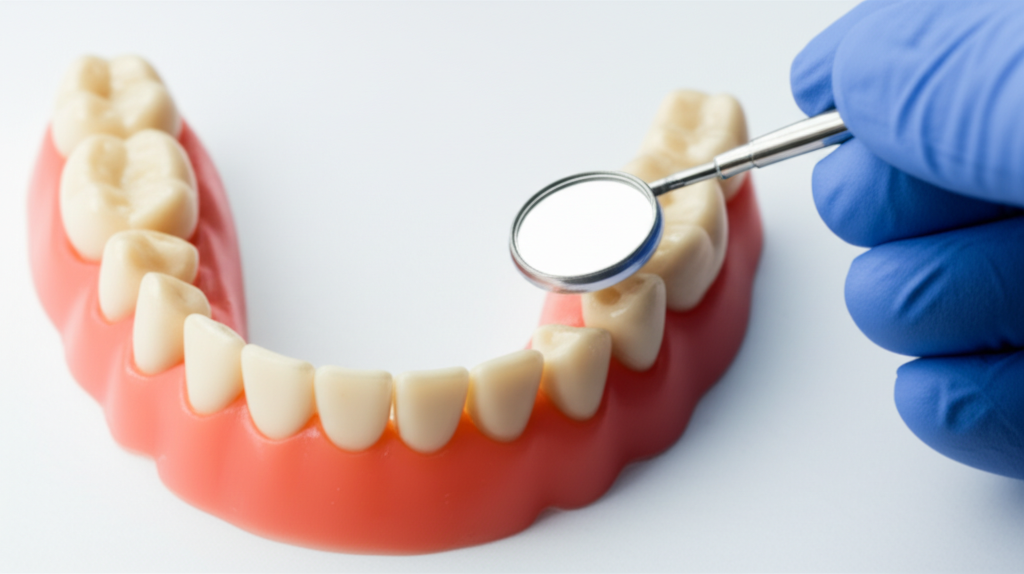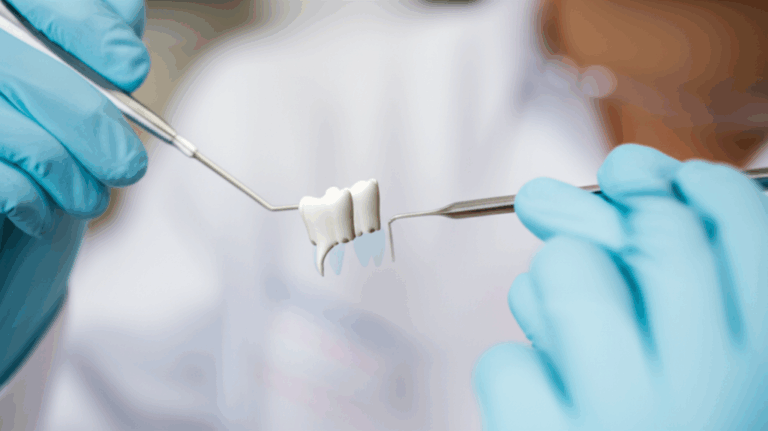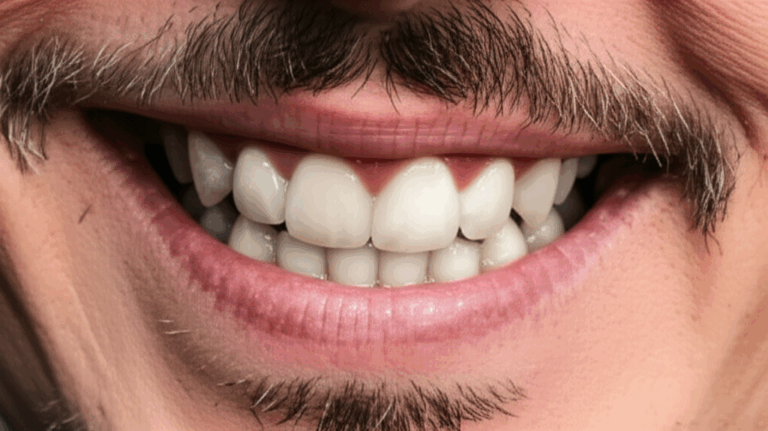
Does the Canadian Dental Care Plan (CDCP) Cover Dental Implants? Your Complete Guide
Are you wondering if the Canadian Dental Care Plan (CDCP) will help you pay for dental implants? Missing teeth can be a big problem for your health, your smile, and your wallet. This article explains—in simple, friendly language—what implants are, why they cost so much, and if CDCP will cover them. I’ll walk you through every detail, so you can handle your dental health without fear. If you want good answers about dental implants and the government’s new plan, you’re in the right place.
Table of Contents
1. Introduction: Dental Bills and the Hope of CDCP
Let’s start with a problem you might even feel deep inside: missing teeth and big dental bills. Have you or someone you care about skipped going to the dentist because it’s too expensive? You’re not the only one. Lots of people in Canada are finding it hard to afford good teeth, especially with pricey fixes like dental implants.
Now here’s the tough part: when you lose a tooth, it’s not just about looks. Eating is harder. Your face shape can change. You might not want to smile or talk much. Your health can even get worse. But every time you hear the cost of implants, your wallet just wants to hide.
Here’s one possible answer—the new Canadian Dental Care Plan (CDCP). It’s a government plan, rolling out now, that hopes to help more Canadians with their teeth. But does it pay for those high-tech dental implants? Or do you have to pick something else? Let’s find out.
2. What Is a Dental Implant?
Let me explain this simply. A dental implant is like a strong metal post (usually titanium) that goes into your jaw bone. It does the job your real tooth root used to do. On top, the dentist puts a connector (an abutment), and then a crown—the part that looks and works like a normal tooth.
So, there are three main parts:
- The implant itself—goes in your jaw.
- The abutment—connects the post to the crown.
- The crown—the visible, tooth-shaped part.
Implants can replace one or many teeth. Sometimes, people get a few implants to help a denture stay in place. Implants stay there for good. You can chew, eat, and smile with them.
3. Why Do People Want Dental Implants So Badly?
Here’s a funny thing—someone once said getting dentures felt like “putting rocks in your mouth and hoping for the best.” Not great! Dental implants are popular for a few reasons:
First, they last a long time—maybe a whole life. No more gluing in dentures every morning! Implants feel and act like real teeth. Eat what you want. No weird sounds or slipping.
Second, implants are good for your jaw. If you lose teeth and don’t replace them, your jaw bone can shrink away. Implants help keep the bone healthy and strong.
Third, they look nice. Dental implants give you a smile that almost looks just like real teeth.
But here’s the hard truth: dental implants are pricey. For many families, the price is too much. That’s why the CDCP is such a big deal.
4. So, Does the Canadian Dental Plan Cover Implants?
Let’s get right to the answer. Does CDCP cover dental implants? The answer is: yes, but only in special cases and not for everyone.
What’s Covered?
According to Health Canada and Service Canada, CDCP may pay for dental implants if they are really needed for health and if nothing else will work. If a regular denture or bridge won’t help—for example, your mouth can’t hold a denture because your bone is too weak—the CDCP might pay for your implant.
CDCP uses a fee guide—a set list of how much they will pay for each treatment. If your implant is allowed, CDCP pays up to the price in their guide. Anything over that? You have to pay.
What Are the Rules?
- Only if really needed: Implants just to look better (cosmetic reasons) are not paid for.
- Pre-approval needed: Before you get an implant, your dentist must get the okay from CDCP.
- Parts they might pay for: The plan can cover the implant, the connector, the crown, X-rays and scans, maybe even bone work—if these are needed for you to chew, talk, and live safely.
- Not paid for: If you only want an implant for looks, or if another treatment will help, CDCP will say no.
If you need an implant and your dentist says it’s the only healthy option, ask them to apply with CDCP before any work starts.
5. Who Can Get CDCP Dental Benefits?
People always ask about this part. You only get help from CDCP if you qualify.
Are You Eligible?
You must check all these boxes:
- You live in Canada.
- You filed your taxes this year.
- You do not have private dental insurance. (If you do, CDCP won’t help.)
- Your family income is less than $90,000 a year.
CDCP is rolling out in groups. Seniors age 65+ are first, then people with a Disability Tax Credit, then kids under 18, then more adults with low incomes.
Seniors (65+): Spring 2024
People with a Disability Tax Credit: Summer 2024
Children under 18: Summer 2024
Other adults: Late 2024
How Much Will You Pay?
If you’re in, CDCP pays some or all of the bill, depending on your income:
| Family Net Income | You Pay (Co-payment) | CDCP Pays |
|---|---|---|
| Less than $70,000 | 0% | 100% |
| $70,000 – $79,999 | 40% | 60% |
| $80,000 – $89,999 | 60% | 40% |
| $90,000 or more | Not in the plan | 0% |
Even if you have to pay some (the “co-payment”), it’s a lot better than paying the whole bill yourself.
6. How Much Do Dental Implants Cost in Canada?
This is the part that shocks people. Dental implants are one of the most expensive dental fixes in Canada.
Here’s the average cost:
| Type of Treatment | Price Range (Average) |
|---|---|
| Single Implant (post only) | $3,000 – $6,000 |
| Crown and connector (per implant) | $1,500 – $3,000 |
| Total Single Implant | $4,500 – $9,000 (or more) |
| Full Arch Implants (All-on-4) | $20,000 – $35,000+ (each jaw) |
Need more than one? The price adds up fast. That’s why so many people want CDCP’s help.
Let’s say you need a $9,000 implant and CDCP only covers $6,000. If your family income is $75,000, you pay 40% of $6,000 ($2,400), not the whole $9,000. That’s big savings.
7. How Do You Apply for CDCP?
Getting started with the Canadian Dental Care Plan is meant to be simple. Here are the steps:
If you want dental implants, your dentist must get you pre-approved. Don’t start expensive work before you have the green light—it could cost a lot!
8. What Else Does the CDCP Cover?
Dental implants are cool, but there’s more to healthy teeth. The CDCP covers many basic and some special dental jobs. Here is what you get:
Basic CDCP Services:
- Checkups, dental cleanings, and X-rays
- Fillings for cavities
- Pulling teeth if needed
- Root canals
- Deep cleaning
- Dentures (full and partial)
- Dental bridges (to fill empty spaces)
- Gum care (for gum problems)
- Some types of mouth surgery
They can also help with other special treatments if you really need them.
For a full list, it’s best to ask your local dentist or dental hygienist for a plan made for you.
9. Dentures, Bridges, and Other Solutions: Covered by CDCP?
Not everyone can—or wants to—get dental implants. Some people are happy with dentures or bridges. These are cheaper, and CDCP covers them for most people.
Here’s a quick look:
| Option | Cost | CDCP Coverage | Good For |
|---|---|---|---|
| Dentures | Lower | Covered for most cases | People missing most/all teeth |
| Bridges | Medium | Often covered | 1–3 missing teeth in a row |
| Implants | Highest | Sometimes, with approval | 1 or many missing teeth |
Dentures and bridges are solid picks when implants aren’t a must. If you need to replace missing teeth and want what’s best for your mouth and wallet, talk to your dentist. They might even use tools or supplies from a trusted china dental lab to create your new smile.
10. Finding a Dentist Who Accepts CDCP
You’ve been approved for the CDCP—what’s next? Not every dentist takes CDCP yet. You need to find a CDCP-approved dentist.
- Call dental offices nearby and ask if they take the Canadian Dental Care Plan.
- Use the Service Canada online list for CDCP providers.
- If your usual dentist doesn’t take it, they might suggest somewhere else.
Tip: Before starting big work like an implant, make sure your dentist can bill CDCP. If not, you might pay everything. Some dentists work with top experts, like a reliable implant dental laboratory, so you get the best fit and quality.
11. Common Questions About CDCP and Dental Implants
Let’s answer some real-life questions people ask.
Is CDCP free?
- If your family income is under $70,000, yes, you pay nothing for covered work. Otherwise, you pay a share.
Does CDCP pay for the whole dental implant process?
- Only if it’s needed for health, and only up to their fee guide. Anything seen as “for looks only” is not paid for.
Do I need approval before getting implants?
- Yes. Your dentist must get approval from CDCP with proof you need implants for real health reasons, not just looks.
What if my dentist doesn’t take CDCP?
- You may need to find another dentist, or pay yourself and try to get paid back (not a good idea unless CDCP says it’s okay).
Can kids or people with disabilities get implant coverage?
- They can if they qualify, but rules are the same—it must be for health reasons only, and no other choice.
If it sounds confusing, you’re not alone! Ask your dentist and check with Service Canada if you’re not sure.
12. Important Points to Remember
Here’s what you should keep in mind:
- Dental implants are not always paid for by CDCP. Only special medical cases, and only if you get approved first.
- Most people can only get CDCP if they have no private dental plan, make less than $90,000, and live in Canada.
- If you’re approved, CDCP will pay up to their price list. Extras and “cosmetic” work won’t be paid for.
- You must get permission before you start implant treatment.
- Dentures and bridges are usually paid for. See what works best for your smile and your money.
- Don’t start any work until your dentist checks your coverage. You could get a big bill.
- The plan is offering coverage in groups. Not everyone is in yet.
- Check with Service Canada or your dentist for the newest info.
- Find a dentist who works with CDCP. If you’re curious, ask about their dental ceramics lab so you know how your new tooth will be made.
Reviewed by: Dr. Joe Dental, Certified Canadian Dentist, 2024
Final Summary Points
- CDCP might help pay for dental implants, but only for health reasons, and only if you get approved.
- Apply as soon as your group can, and always get approval first.
- Dentures or bridges may be a good choice too—they’re usually paid for.
- Talk with your dental provider about the best choice for you.
- Get the latest info from Service Canada, and don’t let missing teeth stop you smiling!
References:
- Health Canada and Service Canada Official CDCP Information (2024)
- Canadian Dental Association Factsheets
- Dr. Joe Dental, personal notes, March 2024
- Statistics Canada: Dental Health in Canada








